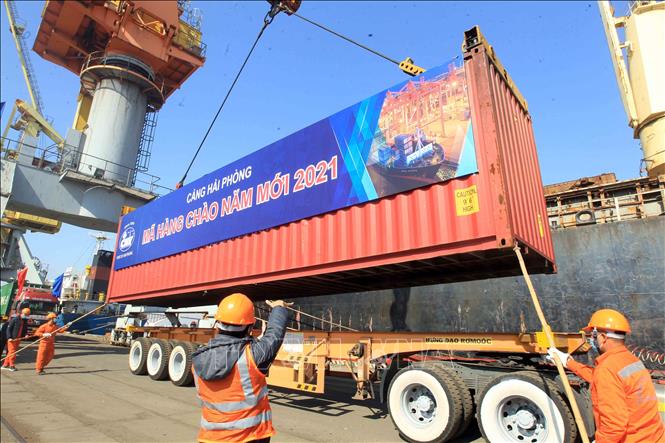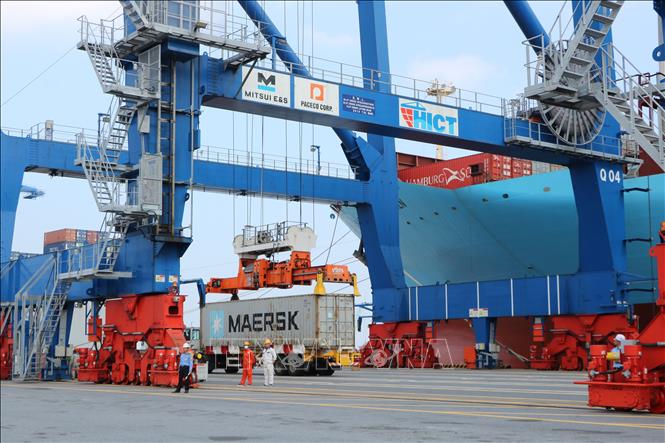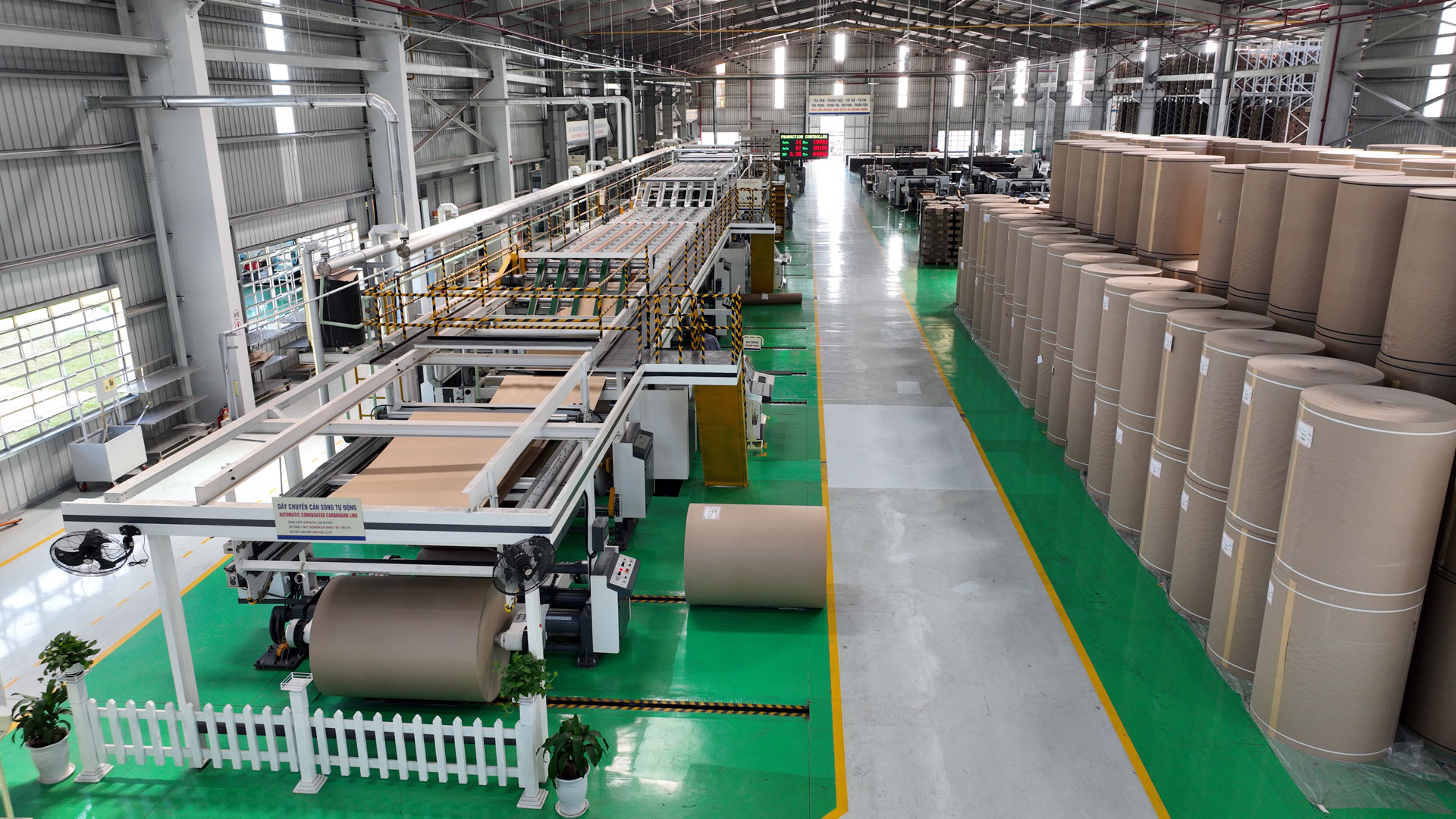Hai Phong has been offering breakthrough policies and solutions, grasping new ideas in order to further promote advantages, improve the role of logistics services in the economic structure of the city, strengthen the economic connection of Hai Phong and create spillovers in the region. However, human resources for this industry are still modest, and a sustainable development strategy is needed.

Humble human resources
According to Assoc. Prof. Dr. Nguyen Minh Duc, Vietnam Logistics Human Resource Development Association, over the past years, Vietnam has been one of the leading countries in the world in terms of economic integration and openness. Since joining the World Trade Organization (WTO) in 2007, until now, Vietnam has had trade relations with over 220 partners, signed and participated in 15 free trade agreements. The most recent are the EU-Vietnam Free Trade Agreement (EVFTA) and the Regional Comprehensive Economic Partnership (RCEP) which are full of potential markets and exports. The development of the country also requires the development of logistics to support, connect and promote socio-economic development, contributing to improving the competitiveness of the economy.
The action plan to improve competitiveness and develop logistics services in Vietnam by 2025, approved by the Prime Minister, has identified 6 groups of tasks and solutions; In which, there is a group of tasks and solutions "training, raising awareness and quality of human resources", accordingly, promoting logistics training at university and vocational training levels, diversify forms of logistics training, connect domestic and international logistics training units and enterprises, and form strong logistics research centers.
The Vietnam Logistics Research and Development Institute (VLI) forecasts that by 2030, Vietnam's logistics industry will add 2.2 million human resources, as well as there is a need for about 200,000 high-quality logistics personnel with professional certificates, professional skills and foreign language ability.
According to the survey results of the Vietnam Industrial Research and Consulting Company (VIRAC), from 60 to 80% of interviewed enterprises believe that the capacity of logistics human resources including direct and managerial staff is only low average. The Australian Aid 2019 report also shows that although businesses are increasingly interested and willing to pay more for human resource training, the results are still very modest; in which, 37.1% of enterprises focus on self-training, 29.9% of enterprises send staff for short-term training of less than 4 weeks, 3.1% of enterprises send staff to study master's in the country and only 1% send employees to study abroad.
The knowledge and skills of Vietnam's logistics human resources also show a clear difference compared to the needs of human resource users from both logistics enterprises and manufacturing companies. The forecast of logistics skills for 2021 - 2023 by the Logistics Industry Reference Council (LIRC) shows that the domestic logistics workforce has not met most of the needs such as skills in information technology, except for language, ability to use logistics software... Besides, employees in the domestic logistics sector also need to be trained and improve their creativity, adaptability and problem-solving ability, planning ability as well as positive thinking at work.
Mr. Dan Duc Hiep, former Vice Chairman of Hai Phong City People's Committee, said that the level of technology application connected to the global logistics network is still poor, so there is often a lack of information, and the work must be handled through agents. The quality of logistics human resources is not high, the percentage of trained staff (mainly self-trained and self-learner) is only about 70%, equipment, means of transport, and warehousing are only at the level of The remaining 30%÷40% must be outsourced to serve customers. The cause of the above situation is that there is no strategy and planning for logistics development in general as well as in Hai Phong area...
Strategic Leverage

Pham Xuan Duong, Rector of Vietnam Maritime University, said that Hai Phong currently has about 175,000 employees operating in the logistics field. However, it is still lacking in both quality and quantity, only meeting about 40-45% of the industry's demand. Forecasting the demand for logistics human resources to meet the average growth rate of 20÷25% per year of the logistics service industry, will be the basis for the development of logistics businesses in Hai Phong.
The demand for human resources is so great, but the scale of logistics human resource training is still too low. Across the country, there are currently 30 universities enrolling and training in logistics or majors with a total enrollment target of about 3,000 students in 2021. In addition, there are 32 colleges implementing logistics training programs and close to logistics with an annual scale of 800 to 1,000 learners.
In Hai Phong, there is only Vietnam Maritime University that trains bachelors in logistics with a capacity of about 300 students a year and about 1,000 students with majors such as shipping economics, transportation economics. In addition to universities and colleges, learners can also be trained through short-term programs at certificate-granting training institutions. The Mekong Subregional Logistics Training Center - Japan in Vietnam is such an institution of the school, with the ability to provide highly practical, international-standard courses that meet the requirements of businesses. Enterprises use human resources, even design short-term training programs according to the specific requirements of each enterprise.
The Politburo has just issued Resolution No. 30-NQ/TW dated November 23, 2022 on socio-economic development and assurance of national defense and security in the Red River Delta until 2030, with a vision to 2045 ; in which, clearly stated: "Building Vietnam Maritime University as a national key university for research and training in service of sustainable development of the marine economy". This is an honor and a great motivation for the school to continue to build and develop to a new height.
For logistics training, Vietnam Maritime University proposes that the parties, including enterprises - schools - state management agencies, agree to optimize of resources and cooperation in the fields of: vocational training, visiting programs, internships, recruitment, academic competitions, career-development programs skills, training cooperation, vocational courses, scientific research, transfer consulting contracts, establishment of the "Scholarship" Fund, a series of seminars with the participation of leading enterprises, foreign experts.
"In order to develop high-quality human resources, the first thing to do is to attract admissions to the logistics industry who are capable students with high entrance scores. At the same time, universities need changes in methods, contents, training programs; updating domestic and international legal knowledge on multimodal transport, main logistics activities and logistics service operation skills for existing human resources," emphasized Rector Pham Xuan Duong.
In addition to training bachelors, institutions also need to focus on training short-term and intensive programs to invest, develop capacity and standardize training quality. Enterprises in the logistics industry should have policies to encourage and support employees to study and improve their qualifications. Learning, updating knowledge, sharing experiences should become a regular and continuous activity.










